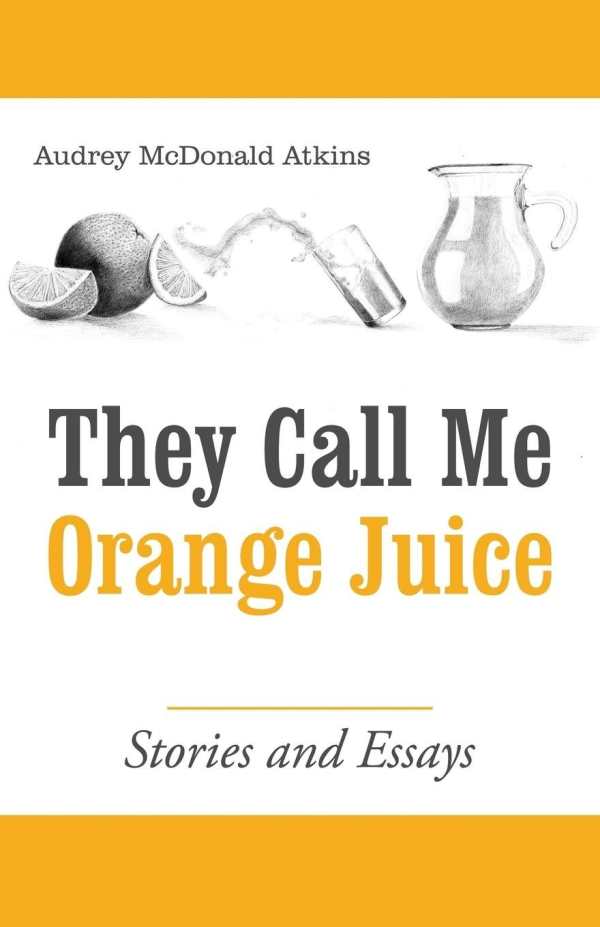They Call Me Orange Juice
Stories and Essays
They Call Me Orange Juice is a wonderful collection from a talented and enthusiastic storyteller.
Audrey McDonald Atkins’s They Call Me Orange Juice is an intimate compilation of funny, down-to-earth stories about the Deep South taken from Atkins’s culture blog, Folkways Nowadays.
An idyllic childhood—set amid verdant arbors, larger-than-life personalities, Southern hospitality, and bad hair days—and ruminations on womanhood and motherhood are captured in this charming and entertaining book. It opens with “The Dark Blot,” a humorous and poignant piece about an agonizing Sunday school experience from Atkins’s childhood. In rhythm with the hymn “Just as I Am,” Atkins wonders whether thoughts of lunch during a long sermon constitute sin.
Family stories alternate with offbeat advice columns and essays expressing righteous indignation over preconceptions about Southern culture. “And We Say Ma’am” rues the day when the polite “ma’am” or “sir” became a euphemism for “old,” while “A Brownie No More” remembers how Atkins’s fear of camping—reinforced by encounters involving water moccasins—ruined her aspirations to become a Brownie. “All Y’all Should Read This” considers whether the essence of Southern culture is captured in a word.
These straightforward autobiographical essays are full of warmth and humor. The writing is playful and introspective, with a conversational and easygoing tone. Descriptive details make the sights, sounds, and smells of the Deep South palpable. The pieces are of consistent length—averaging two pages each—and evenly paced.
Stories revolve around family members, whom Atkins affectionately calls “Husband,” “Sonny,” “Granny,” and “Baw” (Grandpa). Granny and Baw, extended family members who spend the most time with Atkins in her childhood, feature prominently in several tales. Colorful sidekicks like a gasoline-chugging tough guy yardman, Leroy, play the foil to sensible Granny in the more offbeat pieces.
Stories build excitement and end with zingers, such as lessons concerning marriage: “Always have your own money. You might marry a rich man, but nothing says he has to share.” They are informative and make their points succinctly, remaining positive and in keeping with their homage to Southern hospitality and polite culture.
Essays around food are included toward the end of the book; they are not as fun as the stories centered on people, which are more intimate and memory-centered. Still, they capture bits of Southern culture.
“We learn to live—passionately and ferociously—hoping for greatness but content in the here and now,” writes Atkins. They Call Me Orange Juice is a wonderful collection from a talented and enthusiastic storyteller.
Reviewed by
Nancy Powell
Disclosure: This article is not an endorsement, but a review. The publisher of this book provided free copies of the book and paid a small fee to have their book reviewed by a professional reviewer. Foreword Reviews and Clarion Reviews make no guarantee that the publisher will receive a positive review. Foreword Magazine, Inc. is disclosing this in accordance with the Federal Trade Commission’s 16 CFR, Part 255.

